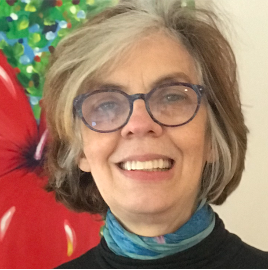ABSTRACT
Data-centric AI has advanced rapidly, but for scientific discovery and high-stakes decisions, it still has limitations. I outline a knowledge-centric agenda that combines first-principles reasoning with learning, integrates prior knowledge with data, and enables explicit trade-off analysis for interpretable recommendations. I illustrate this agenda in Computational Sustainability, across discovery, prediction, and decision-making: for discovery, Deep Reasoning Networks solve inverse problems (e.g., inferring crystal structures from XRD and Sudoku variants); for prediction, multi-entity models span species distributions, materials properties, and soil organic carbon; and for decision-making, we address freshwater-fish conservation under the UN 30×30 goal and conduct Pareto-based hydropower planning in the Amazon. These results show how knowledge-centric AI accelerates discovery and guides sustainable action.
BIO

Carla Gomes is the Ronald C. and Antonia V. Nielsen Professor of Computing and Information Science at Cornell, director of the Institute for Computational Sustainability, and co-director of the Cornell AI for Science Institute. She holds a Ph.D. in AI from the University of Edinburgh. Her research spans large-scale constraint reasoning, optimization, and machine learning. Recently, she has become deeply immersed in the establishment of the new field of Computational Sustainability and in AI for Science. Gomes has led two NSF Expeditions in Computational Sustainability, published 200+ papers (including in Nature and Science), and received the 2021 AAAI Feigenbaum Prize and the 2022 ACM/AAAI Allen Newell Award. She is a Schmidt AI2050 Senior Fellow and a Fellow of AAAI, ACM, and AAAS.
USC is committed to making its events accessible to individuals with disabilities. If you need accommodations in order to participate in this event, you may contact Candace Teixeira at DEN@Viterbi.usc.edu. Individuals requiring accommodations or auxiliary aids such as sign language interpreters/real time captioners and alternative format materials are asked to notify us at least seven days prior to the event. Every reasonable effort will be made to provide accommodations in an effective and timely manner.



